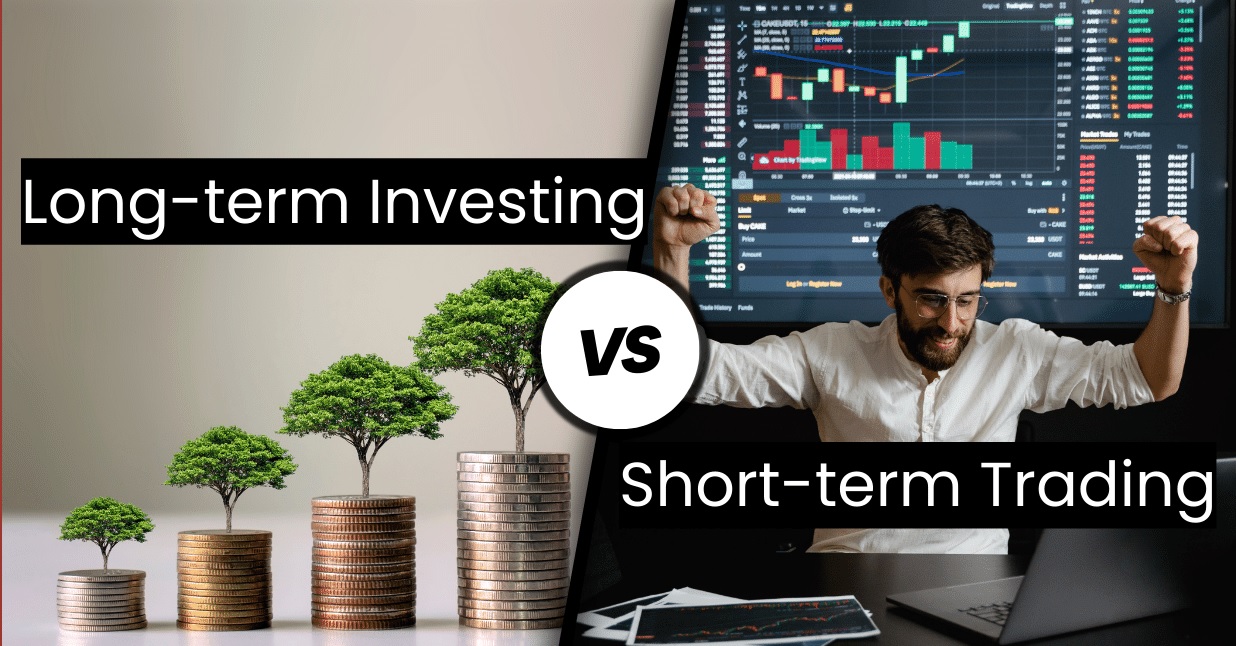Building Wealth through Long-Term Investing vs. Short-Term Trading

First, let us understand what is long-Term investing
Long-term investing is the practice of buying and holding assets for a period of time that is longer than one year. This approach is based on the idea that the stock market, over time, tends to trend upwards. As a result, investors who buy and hold stocks for the long term are more likely to see their investments grow in value.
There are many benefits to long-term investing. First, it allows investors to ride out short-term fluctuations in the market. The stock market is volatile, and prices can go up and down in the short term. However, over the long term, the market has a tendency to trend upward. This means that investors who stay invested for the long term are more likely to see their investments grow in value, even if there are some short-term setbacks.
Second, long-term investing allows investors to compound their returns. Compounding is the process of earning interest on interest. When investors reinvest their earnings, they are essentially earning interest on their interest. This can help their investments grow exponentially over time.
Third, long-term investing can help investors reach their financial goals. If investors start investing early and stay invested for the long term, they can have a good chance of reaching their financial goals, such as retirement or a child’s education.
Now, let us check on Short-Term Trading
Short-term trading is the practice of buying and selling assets within a short period of time, typically days or weeks. This approach is based on the idea that investors can profit from short-term price movements.
There are also some benefits to short-term trading. First, it can allow investors to take advantage of short-term market trends. If investors are able to identify and trade in line with these trends, they can potentially make quick profits.
Second, short-term trading can be a way to generate income. If investors are able to trade successfully, they can generate income from their trading activities.
However, there are also risks associated with short-term trading. First, it is a more volatile investment strategy than long-term investing. This means that there is a greater risk of losing money.
Second, short-term traders need to be more active in managing their investments. They need to monitor the market closely and make trades frequently. This can be time-consuming and stressful.
Third, short-term traders need to have a good understanding of the market and how it works. They need to be able to identify trends and make trades that are in line with those trends.
Which is Better?
So, which is better: long-term investing or short-term trading? There is no one-size-fits-all answer to this question. The best approach for you will depend on your individual circumstances and goals.
If you are looking to build wealth over the long term, then long-term investing is the better option. This is because it is a more stable and less risky investment strategy. However, if you are looking to generate income or take advantage of short-term market trends, then short-term trading may be a better option.






